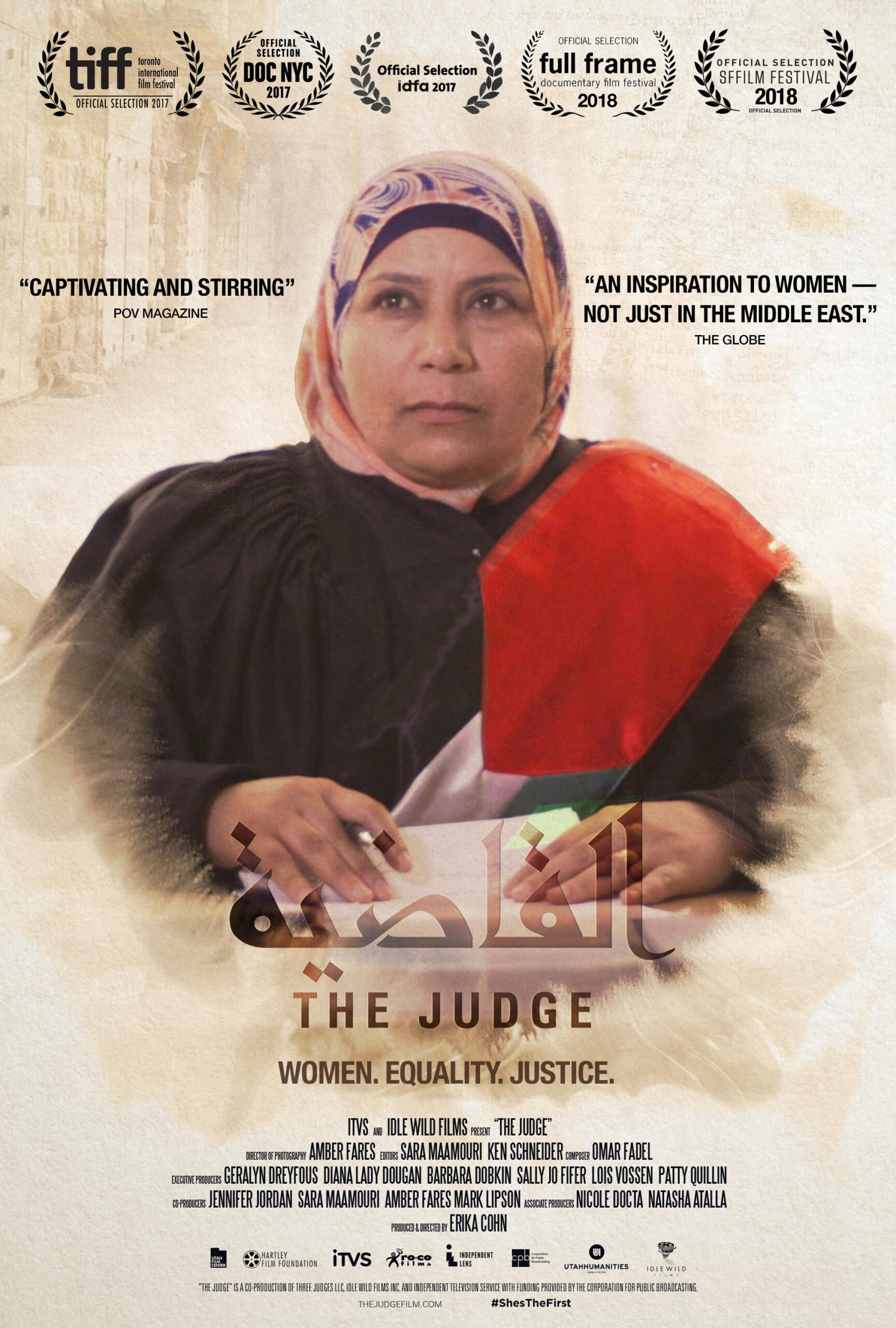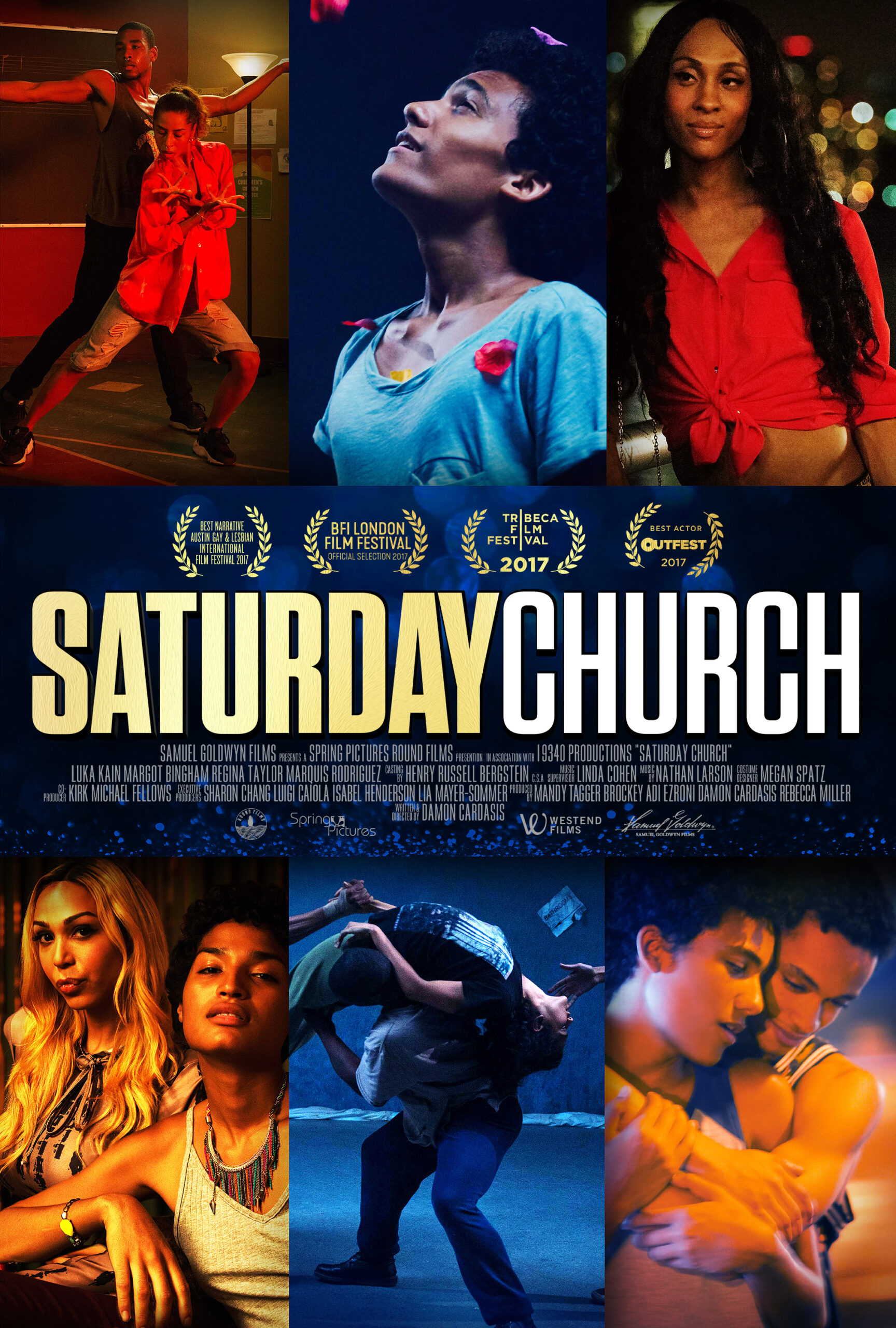A well-executed documentary works on multiple levels. There’s the central story the director explores, but then there’s some other aspect that finds its way on in, often by surprise. Sometimes these elements overshadow the central story, others they enhance – the latter being the case with director Erika Cohn’s The Judge, a compelling piece of verité cinema focused on Judge Kholoud Al-Faqih, the first female justice in the Middle East’s Shari’a court. Cohn, however, doesn’t settle with Al-Faqih’s story, as she uses the honorable judge as a lens to examine gender relations in the region. Fascinating and unrestrained, The Judge is a must-see documentary in an age where the more we know about others, the more alike we find ourselves to be.

In 2009, then-Chief Justice Tayseer Al-Tamimi, despite social pressures to the contrary, appointed Kholoud Al-Faqih, a skilled lawyer working in Middle Eastern courts, as the first woman to serve as a Justice in the Shari’a court. Within her capacity as Judge, she works to dispense justice for all of her clients while also recognizing the need for more women within the legal system. Her’s is a journey of hardship, but also great joy, as she’s able to use her position to use the law to empower those that need help or guidance.

Cohn’s focus on Judge Al-Faqih in court serves two distinct yet equally important purposes. First, it enables the audience to get a sense of who she is as a legal representative. Is she fair or biased? Does she adhere to the law or go with her instincts? These seem like paltry considerations, yet given the underlying issue of gender equality, it’s an important thing for the audience to see and Cohn makes sure to put us right in the room where Judge Al-Faqih does her work. By watching her work with prosecutors, defendants, and lawyers on cases, the audience gets a strong sense of where her moral compass lies. Cohn even enables us to observe Judge Al-Faqih provide counsel outside the courtroom to her friends and family, a clear demonstration that her belief in the law doesn’t stop when she removes her official garb. The second significant purpose of being ingratiated within the court system along with Judge Al-Faqih is it allows the audience to get a real look at what Shari’a law is, away from the Islamophobic lens frequently utilized in American news and cinema. As presented through interviews with Judge Al-Faqih, Sheikh Al-Tamimi, and other members of the court staff, Shari’a law is only one aspect of the legal system in the Middle East, and its primary focus is on family law: marriages, divorces, and the like. Within this system, something that Judge Al-Faqih discusses at length in various avenues, women are given just as many rights as men, but the perception of the law is completely different, even to citizens of their own country. Being given the ability to watch couples discuss their marriage contract – a document that establishes expectations that each newlywed must adhere to – or the dissolution of one is utterly enlightening.

The third element at play that The Judge tackles beautifully is the perception of women’s secondary roles in the Middle East. Given the nature of Judge Al-Faqih’s story – one with more than the expected bumps – a certain amount of discussion and examination of the gender divide is expected. However, Cohn clearly takes great pains never to present one side more than another. Though the focus is on Judge Al-Faqih, Cohn intersperses man-on-the-street interviews from the general public, as well as portions of an interview with professor and Shari’a scholar Dr. Husam Al-Deen Afanah as a counter-point. Their opinions represent a collective idea that while women do offer solid contributions to the country, it’s either against the teachings of the Qur’an, a primary perception, or that women are not emotionally built to dispense unbiased judgments. Unsurprisingly, these are similar to the same judgments, in various times and countries, made about women who sought to take on a role typically held by men. While not an Earth-shattering revelation, it certainly helps to close the recognized cultural divide by demonstrating that their culture is not so far from our own.

Though much can be said about Cohn’s cinematography style, from its sweeping establishing shots, upbeat music, and rhythmic editing to infuse The Judge with motion even when bouncing between interviews. Combined with Judge Al-Faqih, herself a brilliant, charming, and thoroughly engaging to watch, The Judge is the rare documentary that locks you in from the start and never let’s go. But more than that, it shines by serving as a reminder that fear is the largest opponent of progression. Not faith, not law, but fear. Judge Al-Faqih is not afraid and she makes her country better for it.
Currently on a limited theater rollout with a focus on festivals. Find a screening near you here.
Final Score: 4.5 out of 5.
[youtube= https://youtu.be/a5VNYkwjG30]
Find the latest details on The Judge on Facebook | Twitter | Instagram | Website.





